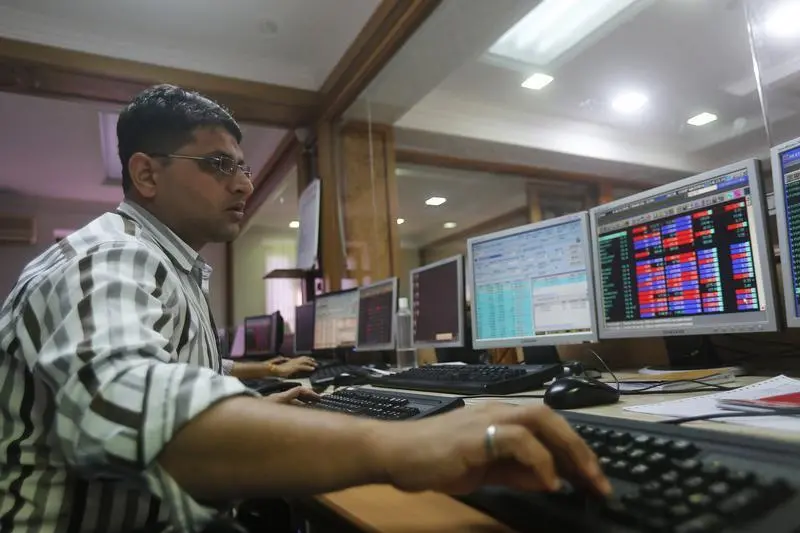PHOTO
SINGAPORE: Adani Group called off a $2.5 billion share sale as losses for the conglomerate's biggest firms snowballed to more than $100 billion in the wake of a U.S. short-seller's report.
The rout has sparked concern that the fallout could also affect, more broadly, confidence in India.
Following are comments from investment managers:
MONICA HSIAO, CHIEF INVESTMENT OFFICER OF TRIADA CAPITAL, A CREDIT FUND BASED IN HONG KONG:
"We were happy to take our profits trading the volatility in recent week across Adani bonds, because we believed there was a floor based on hopes of FPO (follow-on public offering) completion and we sold into strength on their announcement about FPO subscription."
"However after this U-turn by the company to pull out from FPO with equity spiraling, we see the market is losing confidence on how to gauge where the bottom can be and although there will be short-covering rebounds, we expect more fundamental downside risks given more private banks (are) likely to cut or reduce margin and (there may be) possible risk to their ratings and widening inquiries by regulators."
SAT DUHRA, PORTFOLIO MANAGER, DIVIDEND INCOME STRATEGY AT JANUS HENDERSON INVESTORS, SINGAPORE:
"We own less than 2% in Indian equities and would need to see a serious correction before we considered adding especially in light of the recent issues which are likely to sour sentiment for an expensive market."
"We had said previously that in the face of rising external risks, it is difficult to see India continuing this level of valuation premium over other markets especially if China demonstrates a sustained rebound from any relaxation in the zero COVID policy."
GEORGE BOUBOURAS, HEAD OF RESEARCH AT K2 ASSET MANAGEMENT, MELBOURNE (UNDERWEIGHT ON INDIA)
"The Adani effect works both ways given the market cap relative to index. (Investors) benefited on the upside and are obviously dealing with the downside given current events.
"The weighting-risks are similar to the large weighting of Samsung in the Korea Index...(India's) index will need to impose a single stock cap going forward."
"To attract more capital the Indian economy needs more FTAs (free-trade agreements) and more financial market reform - a long process."
MAN WING CHUNG, LEAD MANAGER FOR VALUE PARTNERS’ ASIA EX JAPAN FUND, HONG KONG (UNDERWEIGHT ON INDIA)
"The Adani incident looks to be an idiosyncratic event and the contagion so far looks to be limited with the exception of some names in the financial sector. Given there has not been any significant change for now for the market valuation, the market remains overall expensive in our view."
JIMMY LIM, CHIEF INVESTMENT OFFICER, MODULAR ASSET MANAGEMENT, SINGAPORE (MODULAR HAS NO POSITION IN ADANI)
"We are short the Nifty index but that's a trading view. At this point in time, don't think it's a systemic risk as the balance sheets of banks are strong as they have de-leveraged a lot during COVID period.
"Don't see a wider fallout on Indian Rupee as RBI has strong reserves and have shown their willingness to use those reserves to defend the currency. Adani is a known levered name in India, so I would think most participants should not associate the same issues for other Indian assets."
"Having said the above, I would not expect to see a quick resolution on the questions raised and as such there will likely be a sustained period of deleveraging of risk associated with direct and indirect exposures to the name."
JOSHUA CRABB, HEAD OF ASIA-PACIFIC EQUITIES AT ROBECO, HONG KONG (UNDERWEIGHT ON INDIA ON VALUATIONS)
"India unlike the rest of Asia was at the higher end of its valuation range. We don’t have any exposure to high leverage type of companies – but that just goes to show the impact some bad news – Adani /insurance re budget can do to expensive markets. (India is) still a great long term story and getting cheaper now."
(Reporting by Summer Zhen in Hong Kong, Vidya Ranganathan, Tom Westbrook, Rae Wee and Ankur Banerjee in Singapore; Editing by Edwina Gibbs)




















